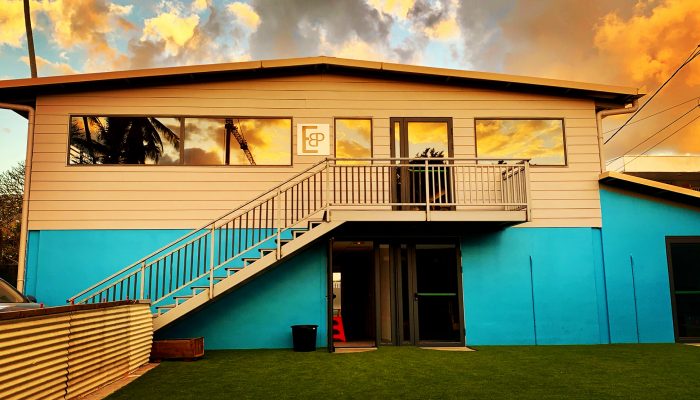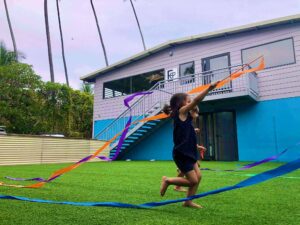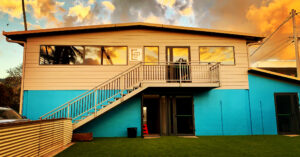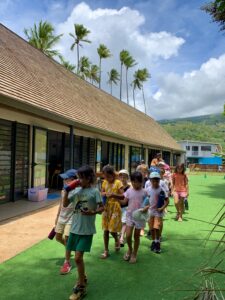QUI SOMMES NOUS ?
L’École Bilingue de Polynésie s’adresse à tous les enfants de 2,5 ans à 11 ans,
de la STP au CM2, qu’ils viennent d’une famille francophone ou anglophone.
APPRENDRE
Un enseignement de très haute qualité. Des professeurs de langue native alertes qui veillent à la progression constante de vos enfants.
MOTIVER
Un corps enseignant hautement qualifié. Une équipe jeune, dynamique, sympatique et très soucieuse de ses élèves et de leurs besoins respectifs.
S'AMUSER
Apprendre en s’amusant. Des cours de langues interactifs qui permettent aux élèves d’apprendre de manière naturelle.
ÉCOLE ÉLÉMENTAIRE/MATERNELLE BILINGUE DE POLYNÉSIE, UN PASSEPORT POUR L’AVENIR !

LES PLUS DE L'ÉCOLE
★ Des professeurs de langue maternelle anglaise
★ Un enseignement personnalisé
★ Des classes à effectif limité
★ Des horaires décalés pour plus de confort
LE PROGRAMME

Information in English!
HOW DOES IT WORK
The programs of each subject are the ones of the Ministry of Education, identical to the programs followed by the “monolingual” pupils. The subjects and schedules result from an agreement between the teachers in order to respect the objectives defined by regulatory measures.
The teaching remains organized according to the principle of the hourly parity. The subjects are dispenses at a weekly rate of ten hours for english. The hours of remedial courses are given in both languages.
The learning of the reading and the writing:
The pedagogy adapted to the bilingual education is designed to allow the child to acquire all the knowledge required within the education os his/her schooling.
Linguistic objectives and results:
The bilingual course has to allow children to reach equal language skills in both languages, at least comparable in French and in English. The 10 hours of English do not infringe on the maternal language ability nor the assimilation of other subjects. In fact it is quite the opposite; they favor them!
USUAL PARENT QUESTIONS
The bilingual program is open to all children, starting from their entrance to nursery school: there is no selection. The reproach of an “elitist” class is this unfounded. Until kindergarten, a pupil can integrate a bilingual class.
On the other hand, if parents wish to register their child in bilingual elementary class, or even later such as in junior high school, the pupil has to prove sufficient knowledge in standard or dialectal English.
The decision of the educational team is then determining.
In the bilingual classes, just like in the monolingual classes, there can be children with difficulties. The bilingual education is not at the origin of these particular difficulties. The struggle is generally not due to bilingual program, but due to many sorts of other reasons. After a transfer in monolingual class, they usually have the same difficulties and do not manage better, or less well. The linguistic aspect is rarely the cause of these difficulties.
The bilingual classes, just like the monolingual classes, can work in simple, double or multi-levels according to the number of children registered in each level. The results of the classes with multi-levels are equivalent to those of the classes with just one level.
Yes, for a new school year, but it is necessary to avoid removing the children after one year: the bilingual program can only provide significant results over time. The child will register many words that he will actively use in primary school only, this you should not get into panic the child does not immediately pronounce full sentences in English.
No, just like for the other subjects (mathematics, history, sciences, music). The knowledge of English is obviously a plus, but it is usually French-speaking parents who register their child on bilingual classes the most
- Precocity
- The hourly volume
- The principle: a teacher = a language
- Positive welcoming and dialogue of the teaching staff
- A favorable social and family environment





